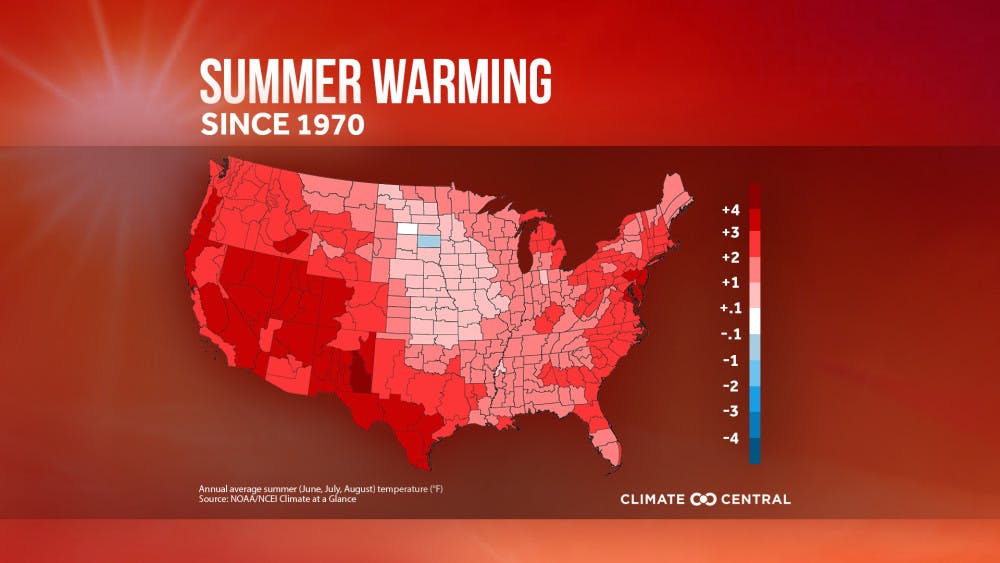As students journey across campus to their new classes this semester, they may be inclined to hide from the heat more than usual. While summer draws to a close, many Colorado residents are still feeling the increasingly alarming effects of climate change.
According to a report from Climate Central, over 95% of the US has seen an increase in average summer temperatures since 1970. Over 50% of the US, including much of Colorado, has experienced an increase of two degrees or more.

While the meteorological summer ends September 1, some Greeley residents are still struggling to beat the heat.
Micaila Hoop, a senior English major at UNC, says she has noticed the summer weather creeping further into the year since moving to Greeley in 2019.
“I remember last year I was able to take my AC out within the first two weeks of school, I don’t see that happening any time soon,” Hoop said. “Everyone I know who had an AC unit over the summer still has it in.”
The summer of 2022 has been defined by extreme heat for more than just Coloradans. China continues to experience an unprecedented two-month-long heat wave, while much of Europe suffers from drought after its own stretch of severe temperatures beginning in June.
For some, the global pattern of disastrous weather events serves to underline the need for a unified front when it comes to climate solutions. This includes UNC senior and graphic design major Millie Swetkovich, who says that everyone must play a role in mitigating climate change.
“I think it needs to be everybody’s responsibility – we’re all on this planet, we all need to take care of it,” Swetkovich said.

At the federal level, this month saw the passing of the Inflation Reduction Act, which allotted nearly $369 billion in investments toward clean energy and climate solutions with the goal of decreasing carbon emissions by roughly 40% by 2030.
Locally, Greeley has made strides toward water conservation, as several departments of the city government work with the city council on a policy to reform Greeley’s irrigation systems, allowing for more effective usage of potable (drink-able) and non-potable water.
As Swetkovich points out, however, solutions to climate change must go deeper than government infrastructure policies.
“I think companies who produce a lot of after-product – for example, cans, or even cell phone companies, electronic companies – I think they should be the ones made responsible to help recycle things like that,” Swetkovich said. “We should continue to look for more ways to contribute to fixing the problem we’re causing, instead of contributing to mass consumerism.”
A report conducted in February by the New Climate Institute shows that many major corporations lack a sense of urgency when it comes to enacting change to reduce carbon emissions, and without substantial regulation, emission reduction goals set by corporations vary widely in scope, if goals are set at all.
Despite the lack of regulation on the private sector, new environmental policies like the Inflation Reduction Act have encouraged Swetkovich.
“I love that we have someone right now who is seemingly a little more dedicated to helping with climate. Especially this last year we’ve seen a lot of very obvious changes – and to other people who have paid attention to this and studied this for years prior, that change has already been obvious to them – but now we’re seeing changes beyond that and it’s in our own backyard,” Swetkovich said. “It’s nice to see that we have some help towards changing for the better.”







